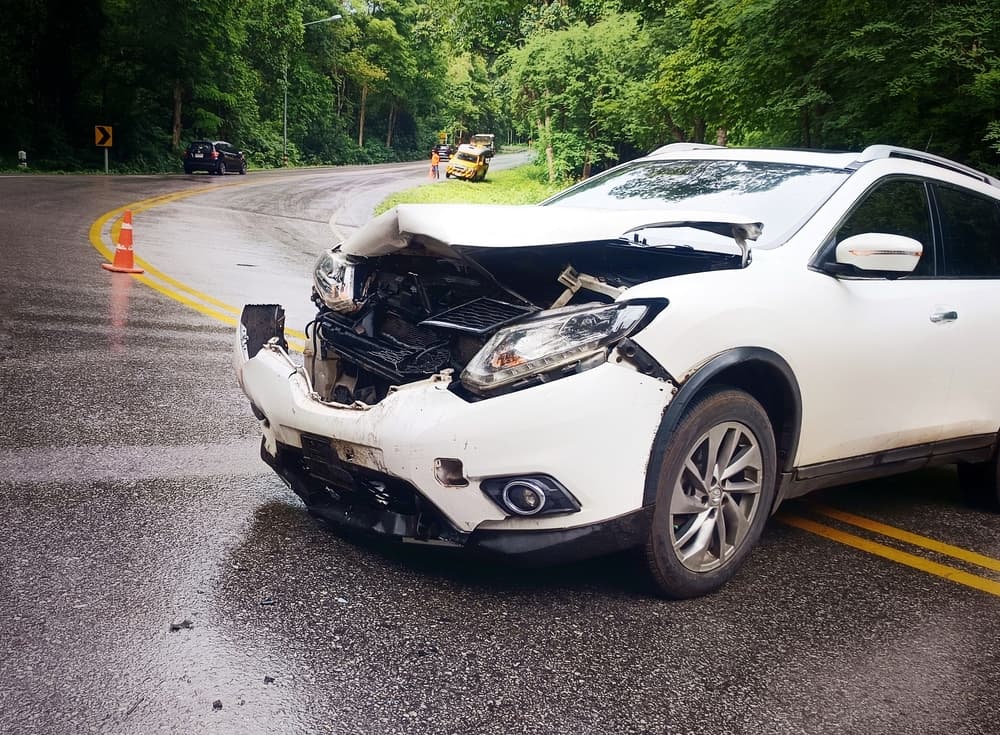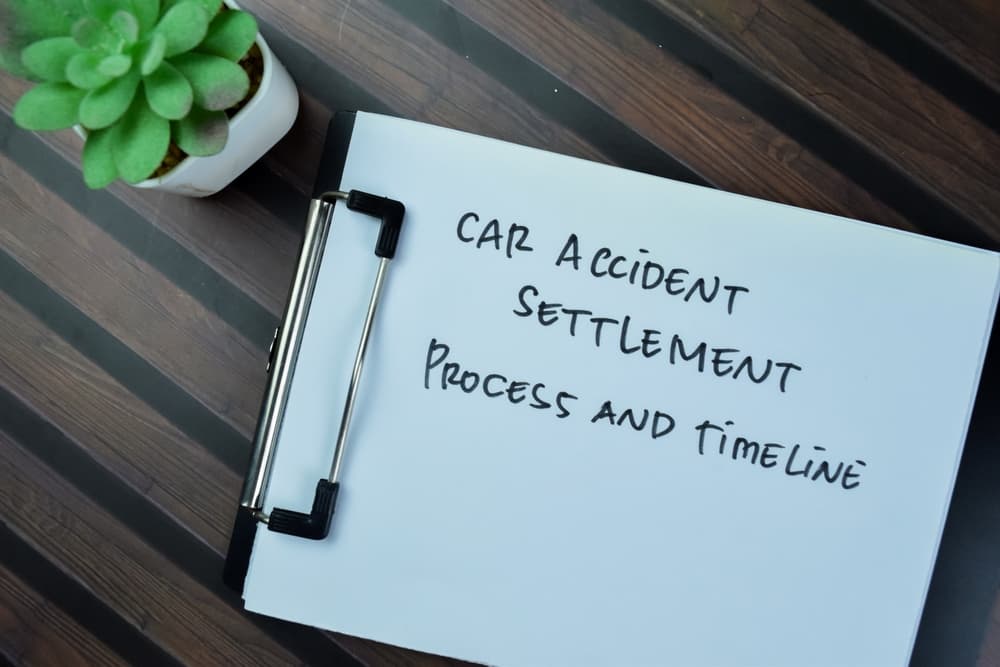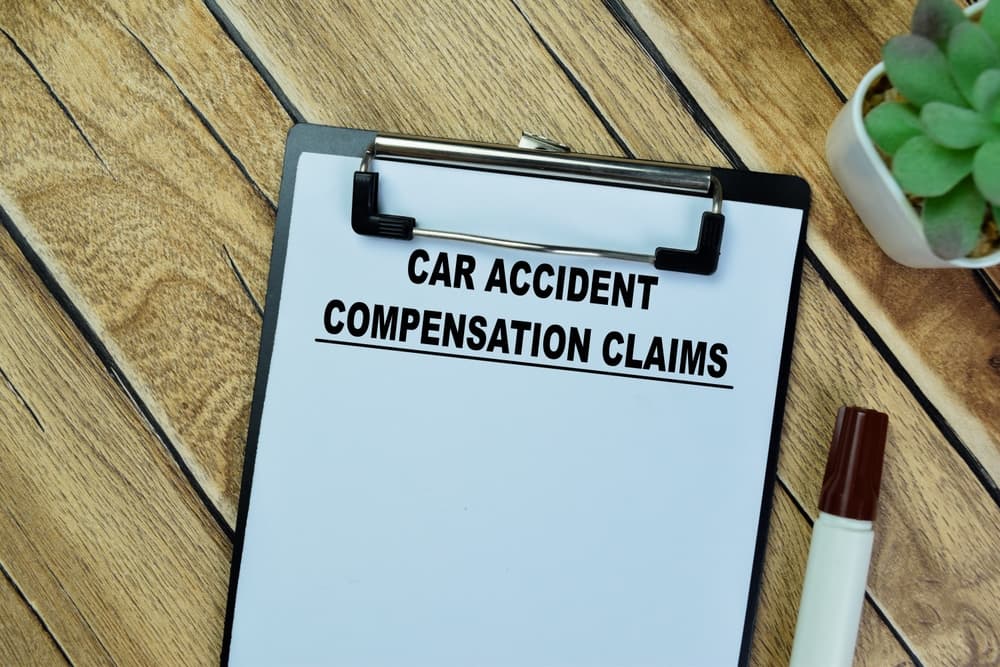If a car accident hurts you or kills a close family member, securing a fair car accident settlement is often the first step toward easing your burdens. Understanding how a car accident settlement works empowers you to take action.
Settling after a car accident requires legal guidance. An experienced car accident lawyer can handle the intricacies of the process, allowing you to focus on recovery.
Contact a car accident lawyer in Tampa today for a free consultation. You’ll have the chance to discuss your case with someone who can help protect your rights.
What Is a Car Accident Settlement?

A car accident settlement is an agreement between the injured party (or their representative) and the at-fault party’s insurance company. The goal is to resolve the claim by compensating the injured person for their losses without going to court. Settlements are common because they save time and legal expenses for all parties involved.
Unlike court judgments, which a judge or jury determines, the parties negotiate settlements. Settlements typically come faster than litigation, but if an insurance company refuses to make a reasonable offer, pursuing a lawsuit might become necessary.
Understanding the Car Accident Settlement Process

After an accident, the steps leading to a settlement follow a logical progression. Knowing what to expect at each stage helps you feel more prepared.
Accident Occurs and Is Reported
The process starts when the car accident happens. Reporting the crash to the police creates a record. This report often becomes an essential piece of evidence when filing a claim.
Gathering Evidence and Documentation
Building a strong claim relies on collecting evidence. Photographs of the scene, witness statements, medical records, and repair estimates all strengthen your case. Documentation lays the groundwork for negotiations.
Filing an Insurance Claim
The next step involves filing a claim with the at-fault party’s insurance company. This notifies the insurer of your intention to seek compensation.
Insurance Company Investigation
Once notified, the insurance company will investigate the accident. They may review the police report, interview witnesses, and assess damage claims. This investigation is done with their interests in mind, not yours.
Initial Settlement Offer
Insurance adjusters often start with a low settlement offer. They aim to minimize payouts, hoping claimants will accept less than they deserve.
Negotiation Process
Rejecting an inadequate offer leads to negotiation. During this stage, evidence and arguments are presented to justify a higher amount. Persistence often leads to better results.
Reaching a Final Agreement
Most claims end with a mutually agreed-upon settlement. Once accepted, the case closes, and you receive the agreed payment.
Factors That Affect Settlement Amounts

The amount you may receive in a car accident settlement depends on various factors. Each case is unique, and these elements help determine the final compensation you could obtain for your injuries and losses.
Severity of Injuries
The extent of injuries sustained in an accident plays a major role in determining settlement amounts. More severe injuries, such as broken bones, spinal cord injuries, or traumatic brain injuries, typically lead to higher settlements due to the increased medical expenses, longer recovery times, and lasting impact on your ability to work or enjoy daily activities.
Property Damage
The cost to repair or replace your vehicle also influences the settlement. A total loss or significant damage to your car often increases the claim amount. Providing repair estimates or proof of replacement costs helps strengthen your case.
Lost Wages and Future Earning Capacity
If the accident caused you to miss work, the income lost during your recovery period is a critical part of your claim. Additionally, if injuries limit your ability to work in the future or force you to take a lower-paying job, those losses are also factored into the settlement.
Pain and Suffering
Compensation for the physical discomfort, emotional distress, and diminished quality of life resulting from an accident falls under this category. While these damages are less tangible than medical bills or lost wages, they are no less real. The settlement reflects the severity and duration of the pain and suffering you endured.
Medical Expenses (Current and Future)
Most settlements pay for medical costs from hospital stays, surgeries, medications, physical therapy, and follow-up treatments. If you require ongoing medical care, your lawyer will include anticipated expenses to ensure the settlement covers future needs.
Liability and Fault Determination
Clear evidence of who caused the accident can significantly affect your settlement. When liability is undisputed, insurance companies are more likely to offer higher amounts.
If the parties contest fault, your settlement may hinge on your ability to provide strong evidence, such as witness statements, police reports, or traffic camera footage.
By understanding these factors, your attorney can better assess the potential value of your claim and advocate for the compensation you deserve. A skilled auto accident lawyer thoroughly documents these elements and fairly accounts for them during settlement negotiations.
Compensation in Car Accident Settlements

Car accident settlements aim to compensate victims for the losses caused by someone else’s actions. These settlements typically include several categories of damages, each addressing a specific type of harm or expense. Understanding the types of compensation available helps you evaluate what your claim might include.
Economic Damages
Economic damages represent the tangible, measurable losses resulting from the accident. These are easier to calculate because they come with a clear monetary value.
Common examples include:
- Medical Expenses: This includes hospital stays, surgeries, medications, physical therapy, and any other medical care needed due to the accident. Future medical costs are also considered if ongoing treatment is necessary.
- Lost Wages: If your injuries prevent you from working, you may claim the income lost during your recovery. This extends to future lost earnings if your injuries reduce your earning capacity.
- Property Damage: Repair or replacement costs for your vehicle and any personal property damaged in the accident fall under this category.
Non-Economic Damages
Non-economic damages address the more subjective losses that don’t have a direct monetary value but still affect your life significantly. These include:
- Pain and Suffering: Compensation for physical pain and the emotional toll caused by the accident and its aftermath.
- Emotional Distress: Anxiety, depression, or other psychological effects stemming from the accident can warrant additional compensation.
- Loss of Enjoyment of Life: If your injuries prevent you from participating in activities you once enjoyed, you may be compensated for this diminished quality of life.
Wrongful Death Damages in Fatal Accidents
When a car accident results in a fatality, eligible surviving family members may seek compensation through a wrongful death claim.
These damages typically include:
- Funeral and burial expenses
- Loss of financial support the deceased would have provided
- Loss of companionship, guidance, or care offered by the deceased
Punitive Damages
Punitive damages are rare but may apply in cases involving gross negligence or intentional misconduct, such as drunk driving. These damages punish the at-fault party and discourage similar behavior.
Compensation in car accident settlements varies based on the details of each case. By including all relevant damages—both economic and non-economic—your settlement can more fully address the impact of the accident on your life. An experienced attorney can ensure your claim accurately reflects the full scope of your losses.
Insurance Companies Don't Have Your Best Interests in Mind
When you file a claim after a car accident, insurance companies may initially seem cooperative. However, their primary goal is to protect their profits, not to fairly compensate you for your losses.
They often employ strategies to minimize payouts, so you need to work with an attorney who knows how they operate and can help you advocate for a better settlement.
How Insurers Calculate Settlement Offers
Insurance companies use a variety of tools and methods to calculate settlement offers. Adjusters rely on formulas, past case data, and software programs to estimate the value of your claim.
While these calculations may seem impartial, they often undervalue key aspects of your losses, especially non-economic damages like pain and suffering. By presenting a low initial offer, insurers test whether claimants will accept less than they deserve.
Tactics Insurance Adjusters Use
Insurance adjusters are trained to minimize claims and protect the company’s bottom line.
Common tactics include:
- Downplaying Injuries: Adjusters may argue that your injuries are less severe than claimed or suggest they existed before the accident.
- Shifting Blame: They might dispute liability by claiming you were partially or fully at fault for the accident, reducing the payout.
- Delaying the Process: Dragging out the claim process can pressure you to accept a lower offer simply to move forward.
- Requesting Unnecessary Documentation: Asking for excessive paperwork or repeatedly questioning your claim adds frustration and slows progress.
- Discouraging Legal Representation: Some adjusters imply that hiring a lawyer will complicate the process, hoping you'll settle for less without legal guidance.
Dealing with insurance companies often feels like an uphill battle. They count on claimants being unprepared or unaware of the true value of their claims.
By seeking legal help when needed, you stand a better chance of receiving fair compensation. An attorney can identify these tactics and push back against unfair practices to secure a settlement that accurately reflects your losses.
Challenges in Seeking a Fair Settlement
Several obstacles can arise when pursuing a settlement. Addressing these head-on makes a difference.
Disputes Over Fault
When liability is unclear, the insurance company may try to avoid paying. Evidence and legal advocacy become crucial in these situations.
Pre-Existing Conditions
Insurers may argue that injuries were caused by pre-existing conditions rather than the accident. Medical records that clearly link injuries to the crash counter this tactic.
Low Initial Offers
Initial offers often undervalue claims. Patience and evidence are key to negotiating higher payouts.
Statute of Limitations
Every state imposes deadlines for filing claims. For instance, you have two years in Florida to file a personal injury lawsuit against the at-fault parties. Missing any legal deadlines can result in losing the right to seek compensation.
Settlement vs. Trial
Most car accident claims settle out of court, but sometimes litigation becomes necessary.
Pros and Cons of Settling Out of Court
Settlements save time and reduce legal costs. However, they may not provide the full compensation you could receive in court.
When Litigation Becomes Necessary
If an insurance company refuses to negotiate fairly, filing a lawsuit may become the only option to secure appropriate compensation.
How to Maximize Your Settlement
Taking proactive steps improves the outcome of your claim.
Document Everything
Maintain records of medical treatments, accident-related expenses, and correspondence with insurance companies.
Seek Prompt Medical Attention
Seeing a doctor immediately after the accident establishes a clear link between injuries and the crash.
Be Cautious When Speaking with Insurance Companies
Stick to the facts and avoid speculation. Insurance companies may use your words against you.
Consider Future Expenses
Include future medical costs, ongoing therapy, and potential loss of earning capacity in your claim.
Work with an Attorney
A lawyer will have your best interests at heart. They know the tactics insurance companies use and can advocate for you to protect your rights and receive a fair settlement. They can also represent you in court if necessary.
What Happens After You Accept a Settlement?
After reaching an agreement, the settlement process concludes with payment and administrative steps.
Timeline for Receiving Compensation
Most settlements are paid within a few weeks after the release form is signed. Delays may occur if administrative issues arise.
Tax Implications of Settlements
While most personal injury settlements are not taxable, exceptions exist. Discussing this with a tax advisor ensures clarity.
Contact Hancock Injury Attorneys for Help
If you're dealing with the aftermath of a car accident, Hancock Injury Attorneys can guide you through the settlement process. Our experienced team focuses on securing fair compensation so you can focus on moving forward. Contact our personal injury attorneys today for your free case evaluation and see how we can help you take the next step toward recovery.